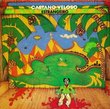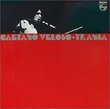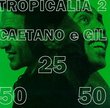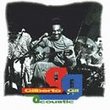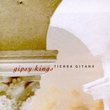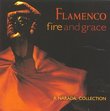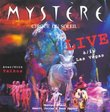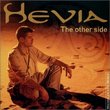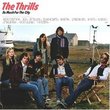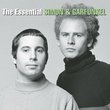| All Artists: Caetano Veloso Title: Livro Members Wishing: 0 Total Copies: 0 Label: Musicrama/Koch Release Date: 8/28/2002 Genres: International Music, Latin Music Styles: South & Central America, Brazil Number of Discs: 1 SwapaCD Credits: 1 UPC: 632427159629 |
Search - Caetano Veloso :: Livro
 | Caetano Veloso Livro Genres: International Music, Latin Music
Caetano Veloso has been tied in a kind of historical knot for decades with Gilberto Gil, with whom Veloso helped spur the Tropicalia movement in the 1960s. And just as Gil's moved on to reference and discuss a panoply of t... more » |
CD DetailsSynopsis
Amazon.com Caetano Veloso has been tied in a kind of historical knot for decades with Gilberto Gil, with whom Veloso helped spur the Tropicalia movement in the 1960s. And just as Gil's moved on to reference and discuss a panoply of themes in his music, so too is Veloso on an extended foray into nonmusical subjects. The sprawl of this package, with its lengthy, swirly-painted accompanying booklet, is aided by Veloso's essay on pop culture in his native Brazil. And while the points he makes--mainly about what literary theoreticians call the "simulacrum"--are cogent, you can't really hear the mark of his ideas in the music. No matter, really, since the music itself is a vertical stack of styles that's both tall and thick. On top of Bahian rhythms, frequently played in the style of drum troupe Olodum, are strong, swaying samba elements. On top of that are riffing, sometimes mellifluously floating horns, and on top of that is Veloso's smooth voice, which moves at an eased speed that counters the thronging sound of all the instruments under his voice. As a whole, the sound is aptly luxurious, with flügelhorns and double reeds and strings, but there's always a rhythmic parade underneath. --Andrew Bartlett Similar CDs
Similarly Requested CDs
|
CD ReviewsAn album of ideas... Estrelinha | 03/03/2004 (2 out of 5 stars) "I am a great Maria Bethania fan and I do respect her brother Caetano. He is a superb composer, poet and interpreter, and what is most important, he has PERSONALITY... a truly brilliant personality ;) I was fascinated by him when I heard his songs Leaozinho and Estrangeiro (on BELEZA TROPICAL compilations by David Byrne). But this album was a bit of a disappointment for me. In fact, it justifies its name - "Book". The lyrics are sophisticated and crammed with Caetano's philosophic ideas, in each song he tries to express an IDEA of global importance... and the music, frankly speaking, doesn't benefit from it. That is, in fact, Caetano's way - if his sister's manner is dramatic and violently sensual, he is a rationalist to the backbone, even at his most lyrical moments he is a bit aloof, he never loses his rationalism. In Livro, he tries to put as much SENSE as possible in each song, to the detriment of the MUSIC and of the EMOTION. The result is that the arrangements are plain boring, his vocals in Baixa do Sapateiro lack expression, as well as in almost all the songs of the album... But I know that he CAN DO IT BETTER, he can write such gems as Leaozinho and Qualquer Coisa, superbly arranged and very sensual, not necessarily carrying a message of vital importance to the mankind, but just - BEAUTIFUL... beautiful like the sunset over the ocean, like flowers, like simple human emotions. The essence of music is emotion. And as far as great ideas go, it is better to express them on paper... ;)" Córrego do consciousness Mark E. Hendricks | Wilton Manors, Florida USA | 05/16/2005 (5 out of 5 stars) "The suggestion that this album proves that Mr. Veloso is 'suddenly old' is not only insulting to Caetano, but also insulting to anyone who might enjoy 'Livro'. The same holds true for the accusations that only a Brazilian can possibly have any perspective on the matter. On the other hand, one reviewer referred to Mr. Veloso as an 'icon' and then, parenthetically, suggested the possibility that Caetano was not an icon but, rather, an 'Iconoclast'. Well ... he was right. It is clear that Mr. Veloso is both. Tropicália, indeed, advocates shattering icons. However, its premise has always provided for the establishment of new ones; by which we may define tomorrow. This album is a solid reaffirmation of Tropicália. It possesses all that was ever embodied by the movement. All of the elements that cross the boundaries of the twilight world that exists between the waking world and the night. All that is rational juxtaposed against the primitive and emotional. All of the technological limitations of 1967 São Paulo versus all of the modern wizardry of wherever one cares to reside today. By definition, Tropicália can never get old. Therein lies the great hope of Brazil (and, dare I say, the world). It has often been said that Brazil is a failed nation, but I ask you: Is it gone? No it is not ... and so long as it lives there is hope. Hope for Brasil and hope for the world. Viva Caetano! Viva Brasil!" The Art of Combining Intellectualism with Pure Passion Hugo Hernán Silva | 03/17/2006 (5 out of 5 stars) "Livro is distinguished by an explosion of Latin America passion combined with a refined intellectual narrative. Caetano creates a world where love, concepts, philosophy and history are intertwined in perfect mode. Veloso unveils in his poems the Brazilian tradition and encircles each of them with a melody that conveys the tropical milieu of samba and bossa nova. The tenderness of his voice in "Voce é Minha" and "Na Baixa do Sapateiro" softens the disgrace of unrequited love. "No Enche" and "How Beautiful..." are good examples of the need for samba. "Alexandre" is by far his best song; a tribute to Alexander The Great that moves and inspires anyone who is acquainted with the hero."
|

 Track Listings (14) - Disc #1
Track Listings (14) - Disc #1